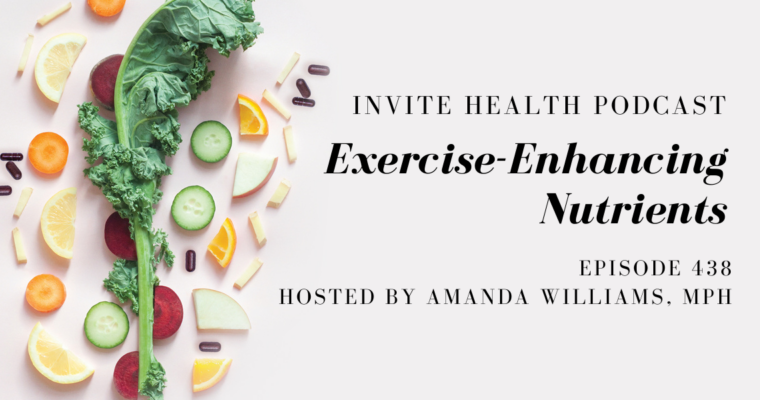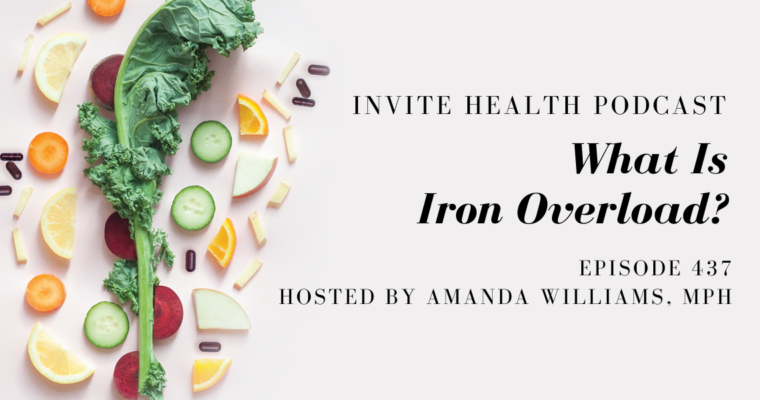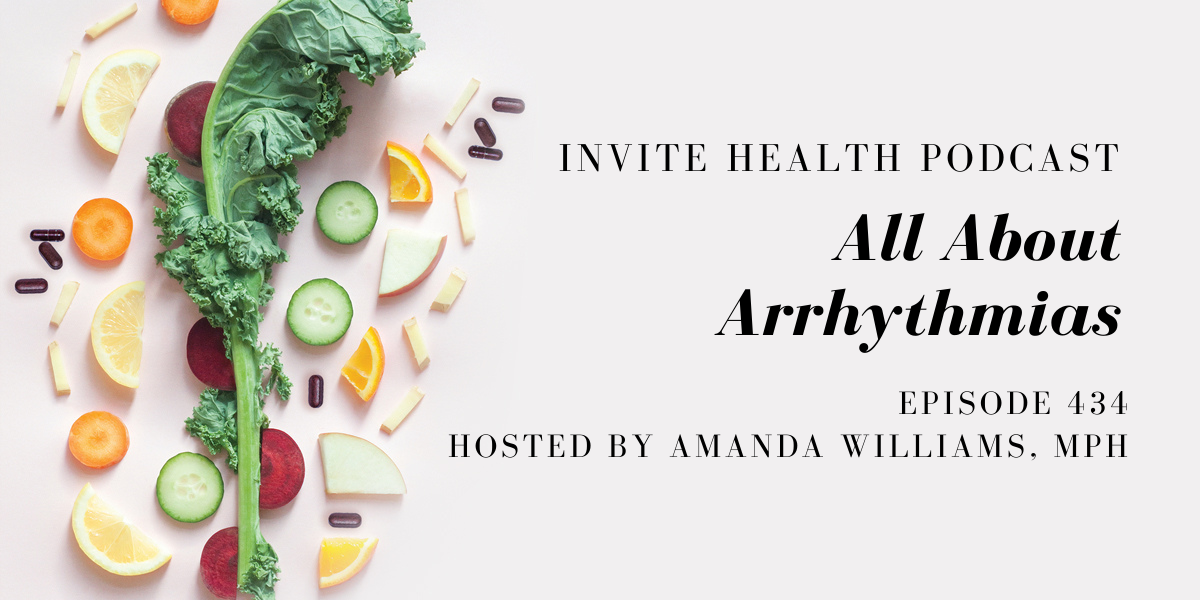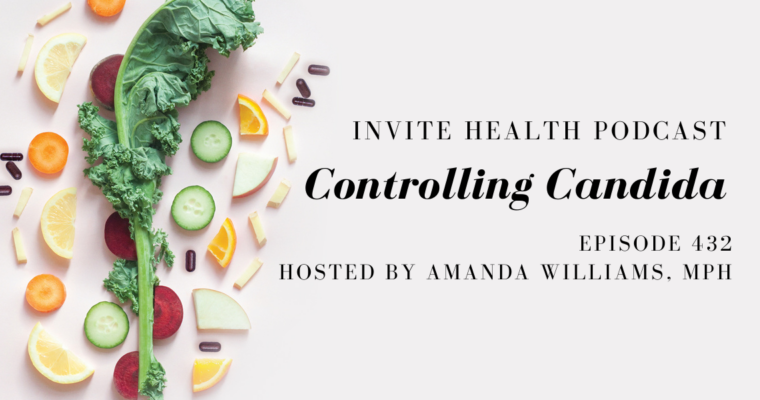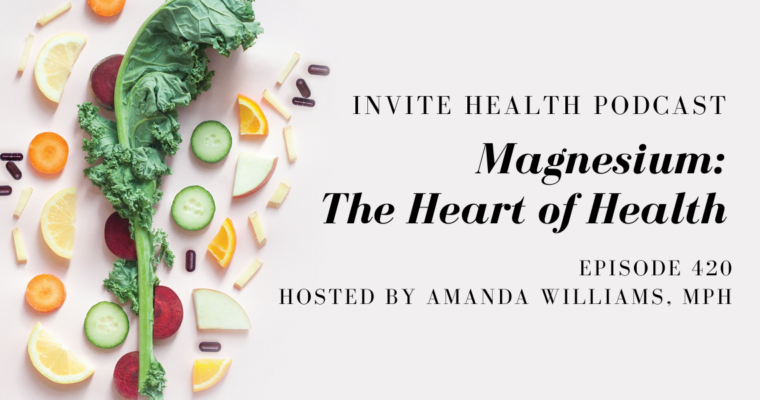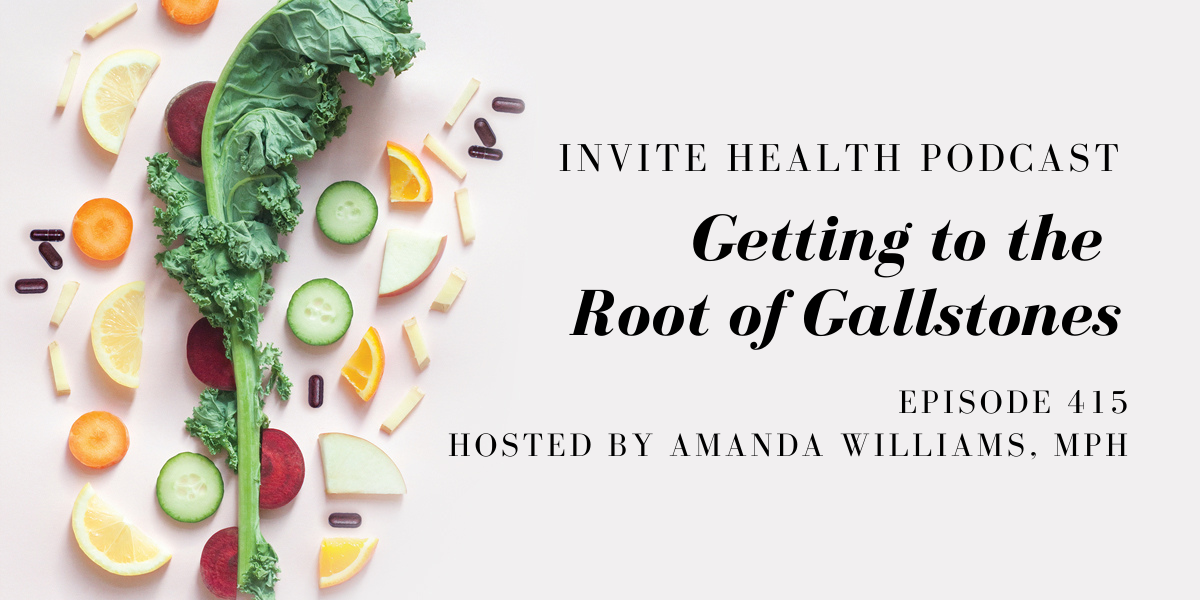arrhythmias
InViteⓇ Health Podcast, Episode hosted by Amanda Williams, MPH
Subscribe Today!
Did you know that roughly 1 out of every 20 Americans has some form of an arrhythmia or abnormal heart rhythm? That is a big issue. Most people have probably heard of the most common type of arrhythmia, which is atrial fibrillations. Today, I want to focus on what arrhythmias actually are, the common signs, symptoms and risk factors associated with them and different nutrients that can be beneficial when it comes to supporting the healthy rhythm of the heart.†
Common symptoms that may come with arrhythmias
Arrhythmias can affect pretty much anyone. This includes people who are otherwise healthy and don’t have any other kind of heart disease. This can be very, very alarming for someone to experience. Some people describe it as the sensation of feeling their own heartbeat or maybe they feel faint, dizzy or lightheaded. Some people can actually experience chest pain or shortness of breath. There are a lot of different ways in which arrhythmias can present themselves.†
FEELING DIZZY? RECENT STUDIES SAY VITAMIN D MAY HELP! – INVITE HEALTH PODCAST, EPISODE 165. Listen Now>>
When we look at the statistics on atrial fibrillations, we see that this is very prevalent throughout the entire world. It’s estimated that nearly 35 million throughout the world have this issue. In America, studies have shown that it is more prevalent in people over the age of 65.†
We have to understand that people who are more at risk for developing arrhythmias can include people who have high blood pressure, coronary artery disease, congestive heart failure, high stress levels, diabetes and thyroid dysfunction, as well as people who are overweight. These are all folks who fit into the category of having a greater risk of the development of an arrhythmia, which can be incredibly problematic.†

Nutrients to support proper heart rhythm
We should be trying to figure out why the heart itself is misfiring and work towards correcting that. There are certain medications that can be helpful, but there are also dietary and lifestyle changes that can be beneficial. We have to think about following a heart-healthy diet like the Mediterranean Diet and getting enough exercise. We have to work towards maintaining healthy body weight and finding ways to keep our stress levels low.†
FENDING OFF FALL AND WINTER WEIGHT GAIN – INVITE HEALTH PODCAST, EPISODE 203. Listen Now>>
The influx of certain electrolytes plays a key role in the heart’s electrical conduction system. Nutrients such as magnesium and potassium are very important when it comes to the way that the heart itself is going to signal those firing pathways. If we are deficient in magnesium, this is going to impede the proper functioning of the heart. Many people who have abnormal heart rhythms also have abnormal magnesium levels. Essential fatty acids are also needed for maintaining the proper rhythm of the heart.†
Nutrients such as coenzyme Q10, hawthorn extract and NAC have also been studied for their benefits for overall heart health, as well as their ability to help fend off arrhythmias.†
In this episode, Amanda Williams, MPH discusses heart arrhythmias. She explains many of the common symptoms associated with this issue, as well as the common treatments, and also provides recommendations for nutrients that can help support proper heart rhythm.†
Key Topics:
- What causes arrhythmias?
- How the heart functions
- Different types of atrial fibrillation
- Common treatments for arrhythmias
Thank you for tuning in to the InViteⓇ Health Podcast. You can find all of our episodes for free wherever you listen to podcasts or by visiting www.invitehealth.com/podcast. Make sure you subscribe and leave us a review! Follow us on Facebook, Twitter and Instagram at InViteⓇ Health today. We’ll see you next time on another episode of the InViteⓇ Health Podcast.


